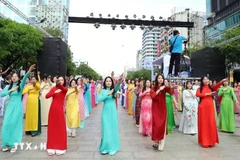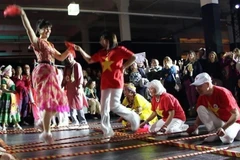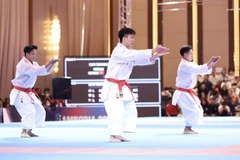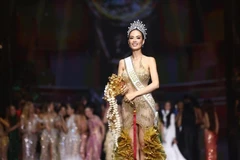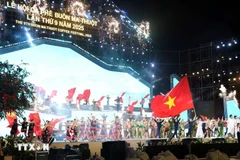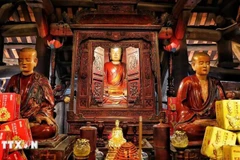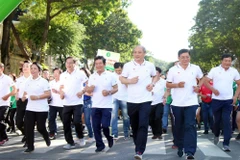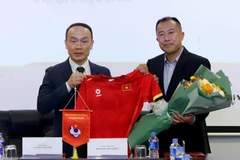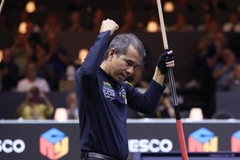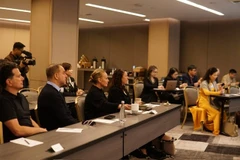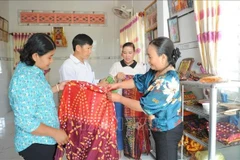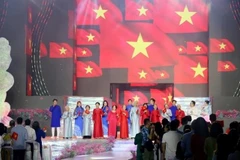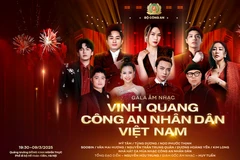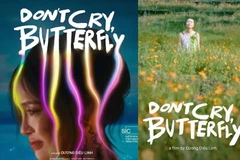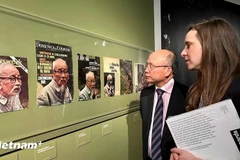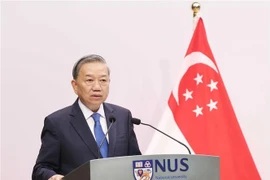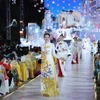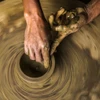The seminar, held by the Ministry of Culture, Sports andTourism and the Phu Tho provincial People’s Committee, aims to collectopinions on the project to preserve and uphold intangible culturalvalues of Xoan singing in the northern province of Phu Tho during the2013-2015 period with a vision towards 2020.
At the event,Vietnamese leading experts and scientists shared the view that Xoansinging contains many traditional values in line with the worship ofHung Kings.
They suggested the preservation of four arttroupes, namely Phu Duc, Thet, Kim Doi and An Thai, and said thatattention should be paid to teaching Xoan singing to young people.
As a traditional style of ritual folk singing, Xoan singing isusually performed in front of communal houses during spring villagefestivals.
The participants agreed to let the art formdevelop in the community, leaving the traditional singing off the modernstage.
In order to create a cultural space and ensure thesustainable development of Xoan singing, many proposed the restorationand upgraded of historical relic sites that accompanied Xoan singing andthe worship of Hung Kings a long time ago.
According to theprovincial Department of Culture, Sports and Tourism, 16 out of 30relic sites where Xoan singing was once performed have disappearedcompletely, while many others are in a poor state due to the impacts ofwar and natural disasters.
Although it is annually performedat the Hung Kings’ Temple Festival, Xoan singing is at risk of fallinginto the shadows due to the erratic transmission of the art through thegenerations. At present, Phu Tho province has 69 Xoan singers but onlyeight of them can teach the art.
Given the situation,participants proposed better care for Xoan singing artists, who are seenas the leading factor in the preservation of the tradition.
The UN Educational, Scientific and Cultural Organisation (UNESCO) haslisted Xoan singing as part of the world’s Intangible Cultural Heritagein need of Urgent Protection.
The 200 million VND project’sobjectives are to pull this genre of music from the list while promotingthe singing as a local cultural product serving the province’s tourismdevelopment.
Meanwhile, the unique practice of worshippingHung Kings has also been recognised by UNESCO as part of the world’sintangible cultural heritage.-VNA
